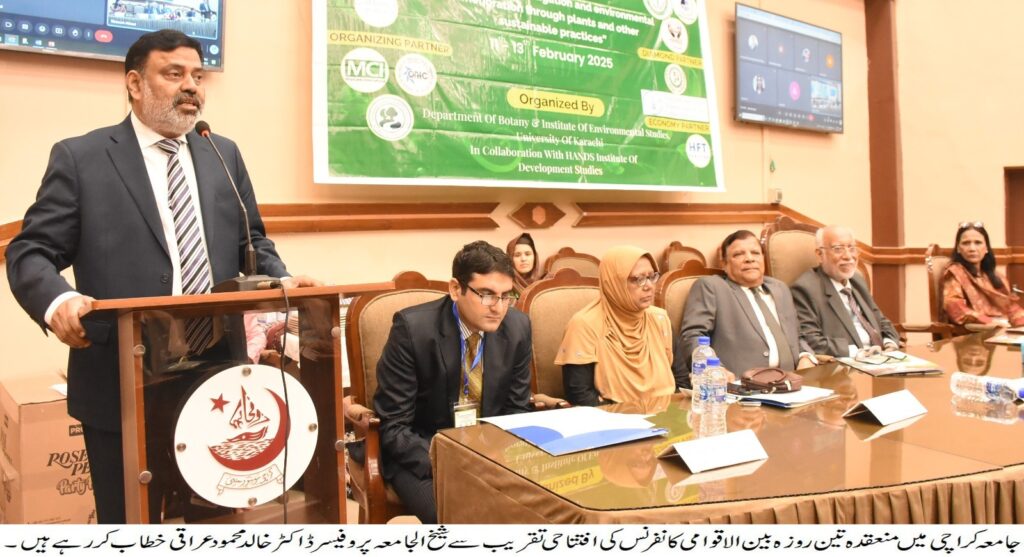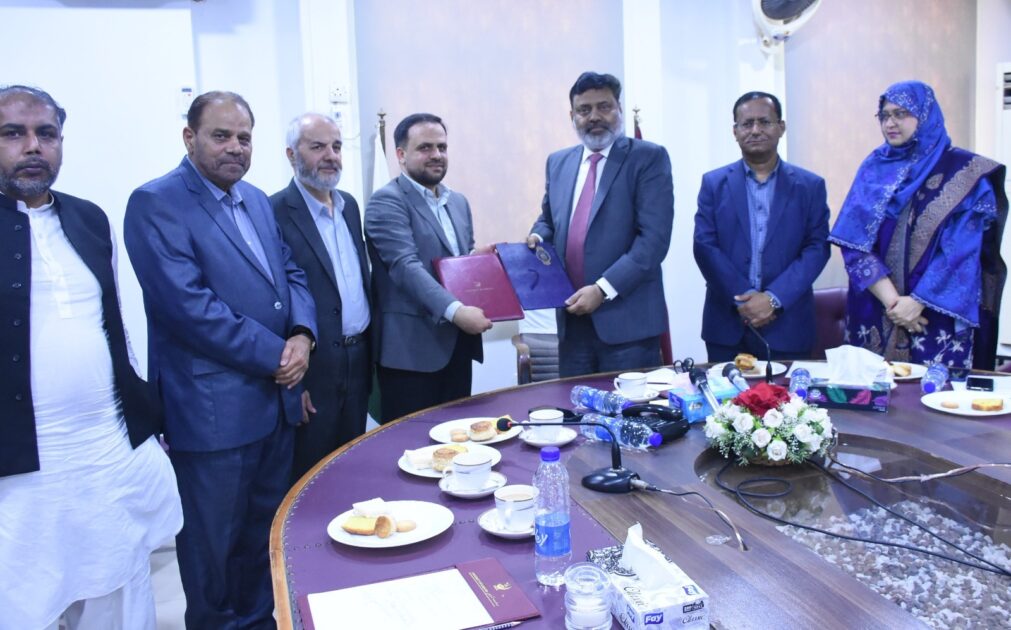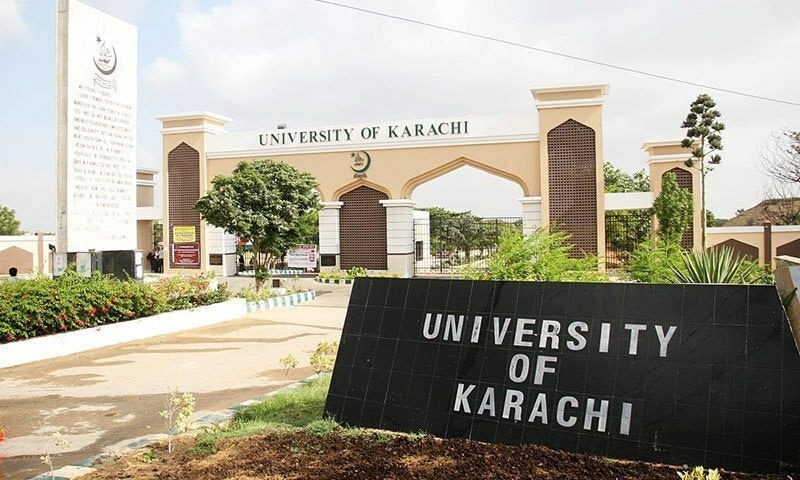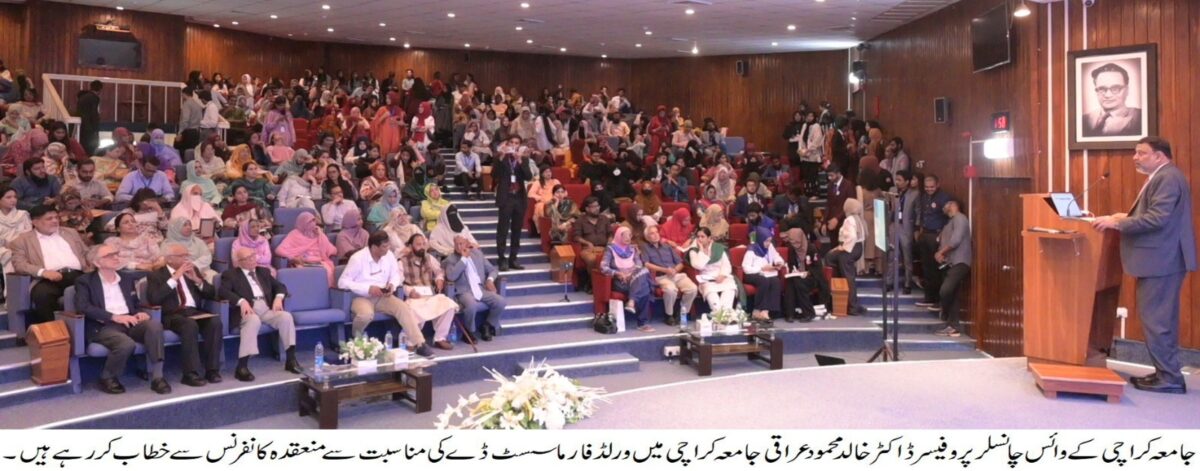- Web Desk
- Jul 09, 2025
KU’s international conference emphasizes importance of planting indigenous trees
-

- Web Desk Karachi
- Feb 15, 2025

KARACHI: The Department of Botany and Institute of Environmental Studies of the University of Karachi (KU), in collaboration with HANDS Institute of Development Studies, arranged a three-day international conference on ‘climate change mitigation and environmental amelioration through plants and other sustainable practices’.
The conference’s inaugural session was held at the KU’s Chinese Teachers Memorial Auditorium on Tuesday. The former KU Vice Chancellor and a renowned botanist Professor Dr Muhammad Qaiser while highlighting a critical issue, pointed out that planting foreign trees without proper research is a major problem, as we often overlook the impact of those plants on our environment.
He stressed the need to plant native trees instead because non-native species tend to create problems and rapidly affect the population of local flora. He cited Malaysia’s experience, explaining that while Malaysia benefited greatly from planting foreign trees, our attempts have not been as successful. The oil palm tree, which significantly contributes to Malaysia’s economy, is not originally from Malaysia but was brought from West Africa. Similarly, the rubber plant, now a cornerstone of Malaysia’s economy, was also introduced from outside.
Professor Dr Muhammad Qaiser emphasized that the introduction of South American trees, commonly known as “Vilayati Kikar,” in Pakistan has led to significant issues. These trees spread rapidly and have damaged our native flora, creating ecological challenges.
He mentioned that during the establishment of Islamabad, Chinese Mulberry trees were planted, which grow very quickly and can become full-grown trees within a year. While these trees have contributed to the greenery, they are also responsible for causing allergies, especially during the winter season. He shared that as a result efforts are now being made to cut them down.
Dr Qaiser stressed the importance of conducting thorough research before planting foreign trees to ensure they are compatible with our environment. He advised that only those non-native species that are suitable for our local conditions should be planted.
The KU VC Professor Dr Khalid Mahmood Iraqi addressed the pressing challenges, including climate change, food shortages, water crises, and other related issues. He emphasized that these are all consequences of climate change, and unfortunately, we have been unable to effectively tackle them.
He pointed out that our surroundings have turned into concrete jungles, and to mitigate the adverse effects of climate change, everyone must play their part. “It is our responsibility to protect future generations from these harmful impacts”.
The KU VC Professor Dr Khalid Iraqi stated that scientific research is the key to addressing contemporary issues, with environmental changes being at the forefront. He observed that ensuring food security is crucial in today’s world, and it is the responsibility of all nations to take necessary steps to combat poverty and hunger.
He mentioned that climate change or global warming has become a challenge for the entire world, especially for developing countries. He urged that immediate and prioritized actions are essential to address it. He noted that, like many other countries, Pakistan is also suffering from the impacts of global warming.
Another speaker, the KU Director of the Institute of Environmental Studies Dr Muhammad Farrakh Nawaz informed the audience about the alarming rate at which Himalayan glaciers are melting, posing a significant threat to an agricultural country like Pakistan, which relies heavily on river water for its agriculture.
He pointed out the severe economic and environmental impacts Pakistan faced due to the 2022 floods, which caused an estimated US$15 billion in economic losses. Dr Nawaz also mentioned that air pollution in Pakistan results in approximately 128,000 deaths annually, and around 40 percent of surface water is contaminated.
“The country generates nearly 50 million tons of solid waste each year. In Karachi alone, about 450 million gallons of sewage are dumped into the Arabian Sea daily. The presence of heavy metals, pesticides, and industrial waste has devastated the soil of this agricultural nation.”
Professor Dr Sadaf Gul from the KU Department of Botany emphasized that climate change and environmental degradation pose significant challenges for Pakistan. She mentioned that these issues impact the country’s social, economic, and health aspects in various ways due to its growing population. Dr Gul stressed the need for multifaceted strategies in both research and legislation to manage and overcome these challenges effectively.
The conference also featured speeches from the Head of the Food and Agriculture Organization of the United Nations James Robert Okoth, the KU Dean of Faculty of Science Professor Dr Musarrat Jahan Yousuf, Rector of Hands Institute of Development Studies Professor Dr Abuzar Wajidi, along with various national and international scholars and researchers.
During his keynote speech, Professor Dr Renjie Dong from China Agricultural University, Beijing, China, talked about biogas: rural and agricultural biowastes valorization for synergetic mitigation of pollution and emission and Dr Natalia S. Bezaeva from Vernadsky Institute, Moscow, Russia, delivered a keynote address on current trends in meteoritics and cosmochemistry, biogeochemistry and green chemistry, research cases from the Vernadsky Institute of RAS Moscow in the first session of the conference.




